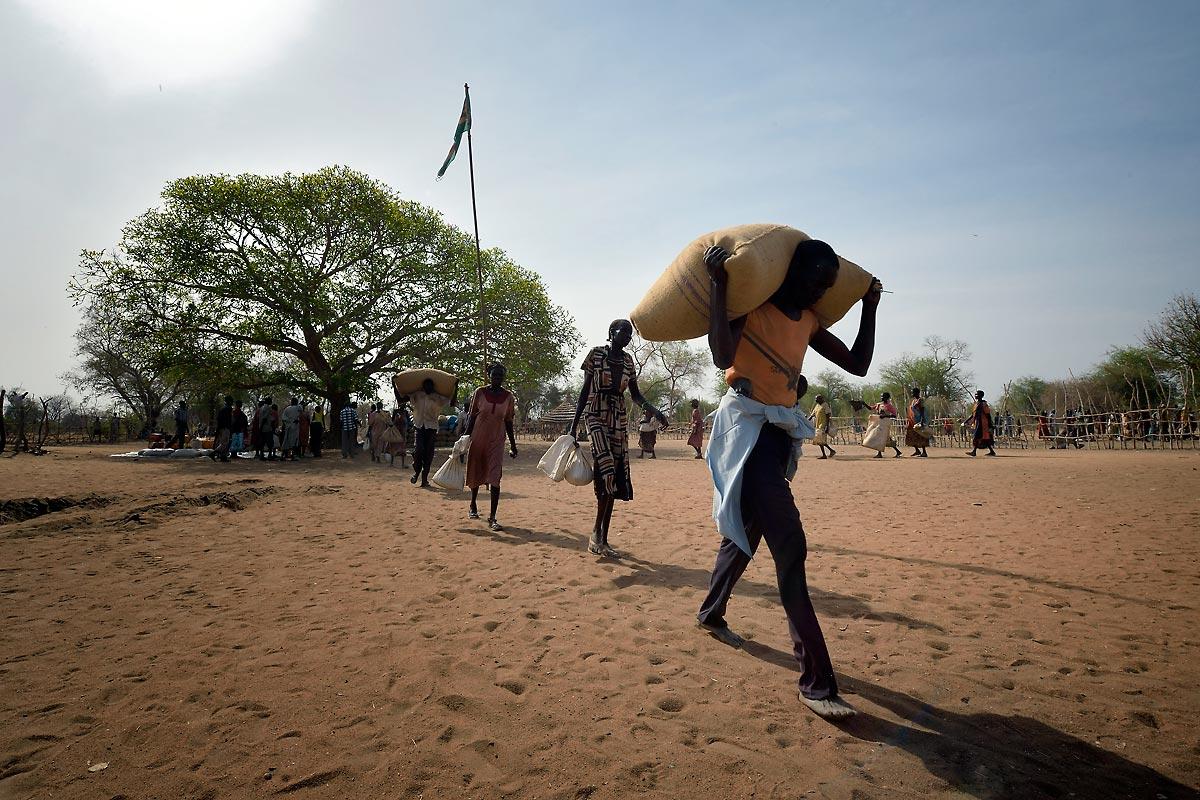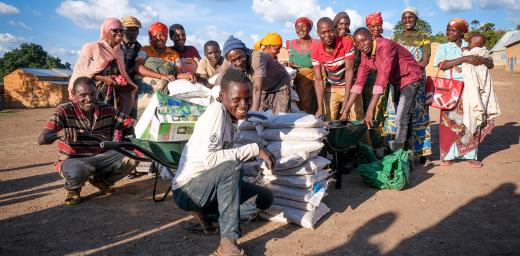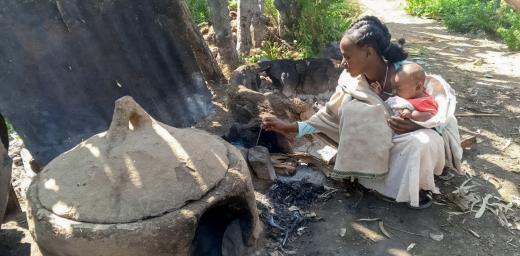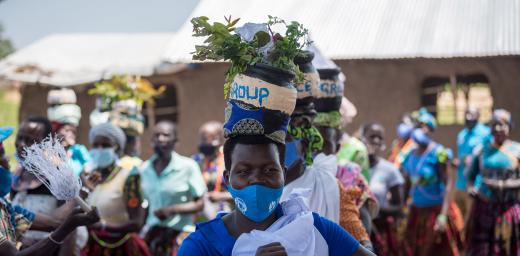G7 must do more to address famine

People receive food from the ACT Alliance in Rumading, South Sudan. Photo: Paul Jeffrey/ACT Alliance
LWF joins global church bodies warning of catastrophe
As heads of the world’s leading economies prepare for the G7 Summit in Taormina, Italy, 26-27 May, leaders of seven global church bodies including The Lutheran World Federation (LWF) are calling on the group to do more to save the lives of 20 million people facing famine in Nigeria, Somalia, South Sudan and Yemen.
“It is the moral duty of wealthy nations to do all they can to provide life-saving funding and assistance and to work to end the underlying conditions that drive starvation: conflict, poor governance and climate change,” they state in a joint statement.
LWF General Secretary Rev. Dr Martin Junge has co-signed the statement together with leaders of ACT Alliance, Caritas in Veritate International, the Salvation Army, World Council of Churches, World Evangelical Alliance and World Vision International.
Humanitarian organizations and our church members on the ground are warning of catastrophe
“Humanitarian organizations and our church members on the ground are warning of catastrophe,” the faith leaders say. They note that hundreds of thousands of people in East Africa are fleeing starvation and conflict, with Uganda hosting the world’s largest refugee camp—Bidi Bidi—home to more than 270,000 people, mostly South Sudanese.
The current crisis, they add, is happening against a backdrop of worsening hunger globally, with 108 million people needing food assistance. “This appalling statistic flies in the face of global commitments to end poverty and hunger by 2030 and suggests that while things are improving for the vast majority of the world, things are worsening for the already worst off.”
They urge the heads of state (Canada, France, Germany, Italy, Japan, United Kingdom and the United States) to make commitments for the money required to fund life-saving aid, address the factors that generate conflict and injustice, and inspire all governments to support the world’s most vulnerable people. “Now is the time to save lives and get on with the job of eradicating this scourge.”





